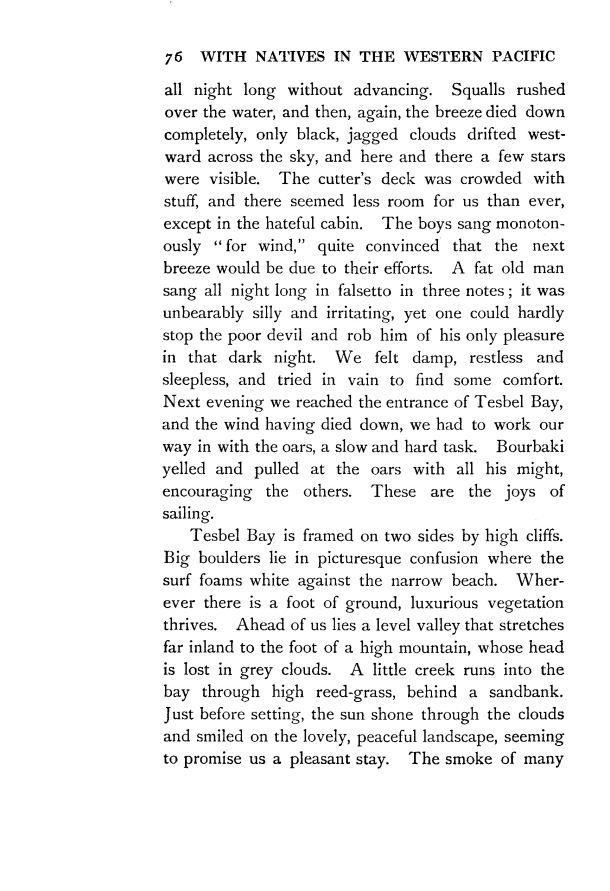|
|  [Note: this transcription was produced by an automatic OCR engine]
76 WITH NATIVES IN THE WESTERN PACIFIC
all night long without advancing. Squalls rushed
over the water, and then, again, the breeze died down
completely, only black, jagged clouds drifted west-
ward across the sky, and here and there a few stars
were visible. The cutter’s deck was crowded with
stuff, and there seemed less room for us than ever,
except in the hateful cabin. The boys sang monoton-
ously “for wind,” quite convinced that the next
breeze would be due to their efforts. A fat old man
sang all night long in falsetto in three notes; it was
unbearably silly and irritating, yet one could hardly
stop the poor devil and rob him of his only pleasure
in that dark night. We felt damp, restless and
sleepless, and tried in vain to find some comfort.
Next evening we reached the entrance of Tesbel Bay,
and the wind having died down, we had to work our
way in with the oars, a slow and hard task. Bourbaki
yelled and pulled at the oars with all his might,
encouraging the others. These are the joys of
sailing.
Tesbel Bay is framed on two sides by high cliffs.
Big boulders lie in picturesque confusion where the
surf foams white against the narrow beach. Wher-
ever there is a foot of ground, luxurious vegetation
thrives. Ahead of us lies a level valley that stretches
far inland to the foot of a high mountain, whose head
is lost in grey clouds. A little creek runs into the
bay through high reed-grass, behind a sandbank.
Just before setting, the sun shone through the clouds
and smiled on the lovely, peaceful landscape, seeming
to promise us a pleasant stay. The smoke of many
|